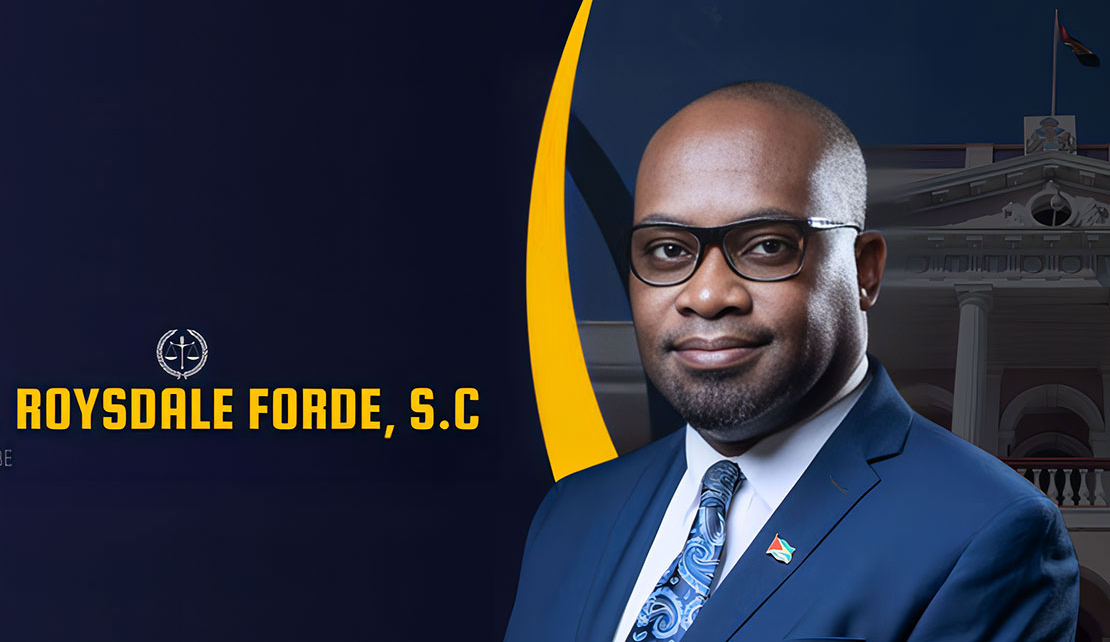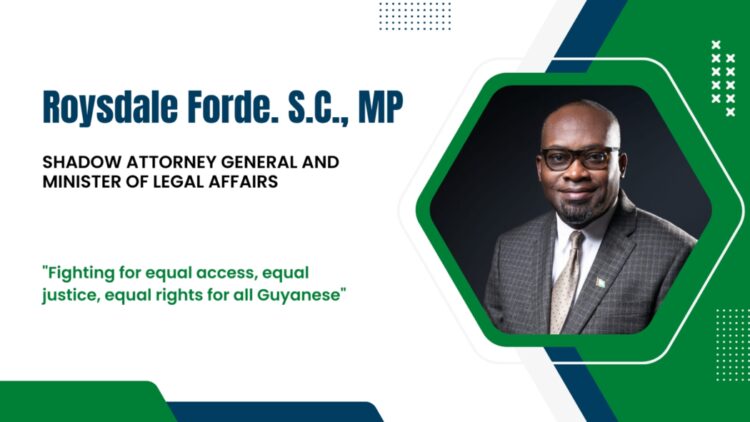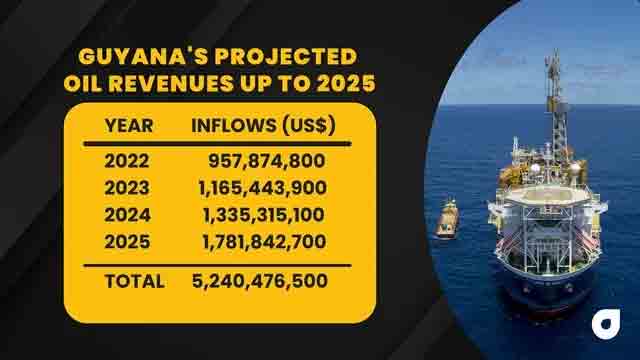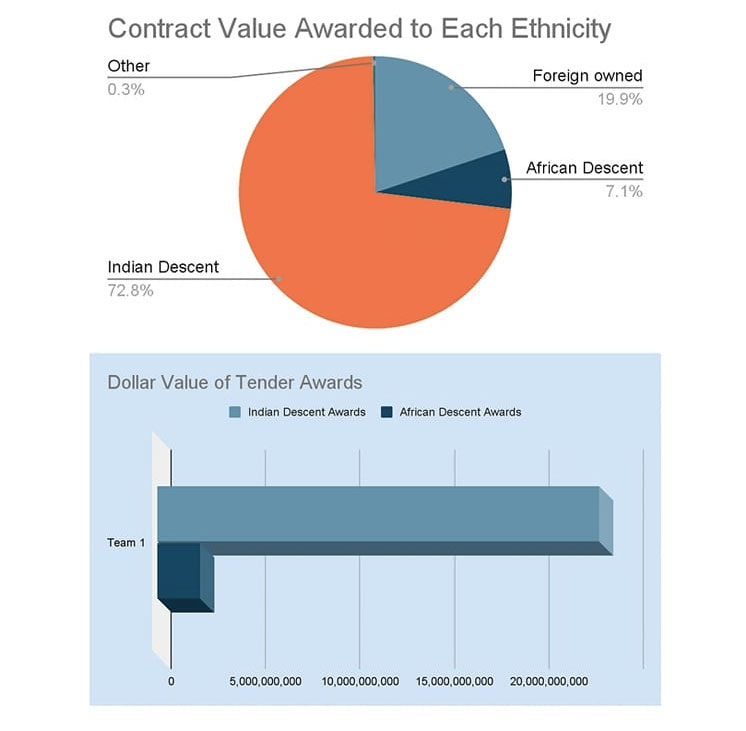GUYANA | Of Reparations, Justice and Fairness for Afro-Guyanese

GEORGETOWN, Guyana, Sept. 4, 2023 - Last week, the descendants of British slave owner, John Gladstone offered apologies to Guyanese for the actions of Gladstone, who held our ancestors in slavery in Demerara. A telling event that could never erase the horrors and dark legacy of this crime against humanity but a first step in the right direction.
 In his message he said that: “It is with deep shame and regret that we acknowledge our ancestor’s involvement in this crime and with heartfelt sincerity that we apologise to the descendants of the enslaved in Guyana. In so doing we acknowledge slavery’s continuing impact on the daily lives of many.”
In his message he said that: “It is with deep shame and regret that we acknowledge our ancestor’s involvement in this crime and with heartfelt sincerity that we apologise to the descendants of the enslaved in Guyana. In so doing we acknowledge slavery’s continuing impact on the daily lives of many.”
However, I wish to make two important points here: The first one is concerned with responsibility and accountability: it is crucial for descendants of slave owners to take full responsibility for the actions of their ancestors and to acknowledge that the wealth, benefits and privileges they might have today could be as a result of this historical exploitation and advantage of others, especially those, who are helpless and vulnerable.
The second one is the potential of such apologies to promote real healing. Such an apology, as the one made by Gladstone’s descendants, can definitely contribute to the healing process for both the descendants of enslaved individuals and the descendants of slave owners.
Again, it acknowledges the lasting solid impact of slavery on different areas of society including economic, social, and psychological dimensions.
Not surprising, President Irfaan Ali was quick to seize the moment and called for the family’s apology to go one step further and address the issues of compensation and reparative justice. Nothing wrong there.
But, it is the Ali led government that continues to refuse to sit down with the workers’ representatives, the Trade Unions, to discuss giving the working class a living wage.
“ If the government places fairness and justice at the top of its priority list, then it can lead to more equitable distribution of resources and opportunities. ”
It is the PPP/C that, through its discriminatory policies and actions, continues to encourage and facilitate worrying inequalities in our society; widening the gap between the rich and those, who are at the bottom of the economic ladder. I am aware that my detractors would attempt to criticize me for stating the obvious.
Whenever they speak or write the first casualty is truth. But they are well within their rights to do that as I am obligated to share and comment on issues and challenges that affect all Guyanese.
However, if we believe that it is true that, “Charity begins at home, and justice begins next door” [ Martin Chuzzlewit (Chap. 27)]
Therefore, it seems clear to me that a critical step in creating an environment in which those who continue to be affected by that evil historical event is swift action by the government to seriously and genuinely prioritise fairness and justice in our society. Today, fairness and justice are more pressing than focusing solely on repatriation and compensation for historical events like slavery.
I have to say that, while acknowledging and addressing historical injustices is important, the PPP/C seems unable or unwilling to deal with many challenges that call for its immediate active attention.
If the government can achieve this, then it would not only reduce tensions and hardship in our society but also give the government a better advantage to work with stakeholders and all Guyanese to push for compensation for the atrocities committed against a people. Against that background, I shall look at some reasons why it is important for the president and his government to place great store on fairness and justice.
First, social cohesion and stability: A key function of these two values is to allow for the appropriate connectedness and solidarity among the diverse groups in our society and to facilitate balance in governance and the governance structure of our nation.
 Addressing structural discrimination, systematic inequalities and promoting a sense of justice can help reduce social tensions, minimize conflicts, and create a more harmonious society.
Addressing structural discrimination, systematic inequalities and promoting a sense of justice can help reduce social tensions, minimize conflicts, and create a more harmonious society.
Second, lifting Guyanese out of poverty: In Guyana, we are struggling with very high levels of poverty. According to the World Bank in 2022 Guyana’s national poverty headcount is among the highest in Latin America and the Caribbean at around 48%. This is a staggering percentage for an oil rich country.
Many citizens are facing a rising cost of living crisis; they can hardly put food on the table for their children and loved ones. As well, some communities are suffering from limited access to basic necessities such as quality healthcare, and clean water.
If the government places fairness and justice at the top of its priority list, then it can lead to more equitable distribution of resources and opportunities. It can also help lift people out of poverty and generally improve their quality of life.
Third, inclusivity in national development: Strategic focus on fairness and justice ensures that development initiatives and efforts are inclusive and benefit all members of society. This helps prevent marginalized groups from being left behind and promotes a more balanced and sustainable development trajectory.
As it is now development, in many cases unsustainable, is being managed or mismanaged in a lopsided way, in local communities. Infrastructural works are done in an ad hoc way. There appears to be no macro detailed plan for the construction of roads, bridges and other related facilities across Guyana. Also, the quality of roads is another problem.
 Different contractors, some with little to no experience in such civil and engineering works are awarded contracts to build and repair roads.
Different contractors, some with little to no experience in such civil and engineering works are awarded contracts to build and repair roads.
The result is that many of them are underperforming, wasting resources and putting at risk the lives of motorists and others who use those facilities.
Over the last few days, certain sections of the media reported President Ali as saying that he does not need the opposition to promote his ‘one Guyana’ mantra.
Not that, it could replace the national motto: One People One Nation One Destiny. But even if the ‘one Guyana’ had real value for national development how could it be genuinely promoted without the other half of Guyanese, who are represented by the opposition?
This is exactly why there is always the niggling thought that this mantra promoted by this regime is superficial and masks the real intention and intentionality of the incumbent.
This ‘one Guyana’ cry generates a negative, shallow side that contains its own processes that allows some to benefit and others to be disadvantaged.
Next, the rule of law: undoubtedly, a just and fair legal system is essential for the rule of law to prevail. This fosters an environment where ordinary citizens and businesses can conduct their affairs with confidence, knowing that their rights would be protected and disputes would be resolved fairly.
This in turn encourages economic growth, investment and social stability. Again, I pause, here, to note that its has been more than 17 years that Guyana has been without a substantive Chancellor of the Judiciary and a Chief Justice.
The inaction of the government in this area of the legal architecture of our country speaks volumes to its tactical posture to subtly influence control over this branch of government.
Also, there is the question of good governance. The view that fairness and justice are good indicators of good governance is widely accepted and holds significant merit. They serve as foundational pillars to keep in place certain other values such as transparency and accountability, that allow the effective functioning of any well- governed society.
They help to not only construct but also keep in place guardrails that reduce corruption in high and low places. This in turn assists the government to gain the trust and support of its citizens.
It is true that calls for repatriation and compensation for historical events like slavery are in order. However, they do not address the immediate challenges and felt needs that we as a nation face, under this PPP/C regime.
It is important for the government to strike a good balance between acknowledging historical injustices and addressing the pressing issues that impact the well- being of citizens at this point in time.
While we fight for what is justly and rightfully ours- repatriation and compensation- let us also strive to better present conditions by holding the government accountable for its words and deeds.
-30-
